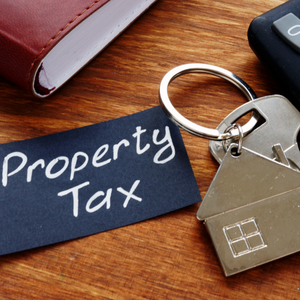
Selling a home in Hawaii can bring exciting opportunities, but it also comes with significant tax considerations. Understanding capital gains tax on Hawaii property sales is essential to maximizing your profits and complying with state and federal laws. This comprehensive guide explains the fundamentals of capital gains, Hawaii’s unique tax rules, and vital tips for navigating tax implications after your home sale. Whether you’re a longtime resident or a first-time seller, learn what you need to know about capital gains tax in Hawaiʻi to make informed decisions and protect your hard-earned investment.
Key Highlights
- Hawaii home sales are subject to both federal and state capital gains tax, with unique rules like HARPTA withholding for nonresident sellers.
- Federal exemptions allow exclusion of $250,000 (single) or $500,000 (married) in gains for primary residences, but the Hawaii state tax may still apply.
- Residency status, HARPTA withholding, and accurate documentation are crucial for minimizing tax liability and ensuring a smooth property sale process.
- Hawaii home sales involve special scrutiny due to out-of-state owners, complex residency rules, and dual HARPTA/FIRPTA withholding requirements.
- Comprehensive preparation, including keeping renovation records and understanding exemptions, enables sellers to maximize gains and avoid costly mistakes.
Understanding Capital Gains Tax After Selling a House in Hawaii
Understanding Hawaii’s capital gains tax and federal tax rules is essential for financial planning when selling real estate. State and federal regulations affect your taxable gain after each property sale. Hawaiian tax law, including HARPTA and local withholding, affects residents and non-residents selling a home or estate.
This article covers property sale gains calculation, Hawaii capital laws, and the next steps to consider before selling your home. This overview prepares you for a tax-savvy Hawaii real estate transaction.
How Hawaii Capital Laws Impact Your Property Sale
Hawaii is unique in its approach to capital gains tax and real estate transactions. Property sales gains are subject to federal and Hawaii’s capital gains taxes, requiring more planning than on the mainland.
Calculate taxable gain by determining original purchase price, improvements, and final sale price. Every home or estate sale in Hawaii may result in capital gains taxes, even though they are lower than ordinary income taxes. Each transaction is unique, and Hawaii capital rules can significantly impact your net proceeds after a sale. HARPTA withholding is a key Hawaii rule. Out-of-state sellers must withhold 7.25% of the sale price at closing under HARPTA.
This is a prepayment to ensure the state receives your taxable gain, not the capital gains tax. Sellers who live outside Hawaii must understand HARPTA and its forms and requirements. Local residents who don’t meet residency requirements may also deal with HARPTA. Noncompliance can lead to costly delays or unexpected tax bills. If you sell a primary residence or rental property, the federal capital gains tax and Hawaii’s capital gains tax law can be complicated. The IRS exempts primary residences, but Hawaii tax law may have different criteria and different gain or loss timelines.
Comparing Hawaii’s property sale taxable gain rules to the federal exclusion limits of $250,000 for individuals or $500,000 for couples is crucial. Repairs, allowable improvements, and closing costs reduce capital gains and tax liability, so keep detailed records. Additionally, federal and state forms and filings are required. Fill out forms detailing your gains, calculate taxes, and report withholding to the state.
Since Hawaii real estate transactions require disclosures, being proactive with your documentation can prevent IRS or Hawaii Department of Taxation audits. Selling estate property may have different taxable gain rules, especially if you inherit versus sell during probate. Since the state holds buyers responsible for HARPTA mismanagement, they often help with withholding. Staying current on tax law, form requirements, and deadlines can be stressful.
Federal tax, HARPTA, and state-specific tax create a unique decision-making environment for Hawaii real estate sellers and others in Hawaii. Hawaii capital taxes, combined with the federal capital gains tax, require careful record-keeping, timely filings, and often the guidance of a tax professional to maximize your return and minimize surprises.
Understanding all of Hawaii’s capital laws will help you protect your gains and avoid costly mistakes when selling your home, whether you’re a resident upgrading, a non-resident investing, or an estate sale. Clear information, accurate withholding, and understanding of requirements, including HARPTA and federal tax implications, are crucial. Planning for capital gains and adhering to tax and withholding rules ensures a smooth listing-to-closing process while adhering to Hawaii’s diverse real estate laws and tax facts.
Navigating Capital Gains Rules for Your Home

When it’s time to sell your home in Hawaii, clarity about capital gains rules can make a major difference in your bottom line. Between state-specific tax rates, federal laws, and local nuances, understanding exemptions for primary residences, tax minimization strategies, and Hawaii’s unique property tax implications is paramount.
Key factors, like residency status, the type of home or property you’re selling, and whether it’s an investment or your main residence, determine the capital gains tax you owe after a sale. Knowing how equity, income, and the HARPTA law apply to your situation, plus which forms are required, helps sellers make confident and profitable moves while following Hawaii’s tax laws.
Essential Exemptions When Selling Primary Residences in Hawaii
Selling your primary residence in Hawaii allows powerful capital gains exemptions that boost profits. Hawaii’s gains tax complicates federal exemptions. If your home was your primary residence for two of the past five years before the sale, you can exclude up to $250,000 in capital gains if single or $500,000 if married and filing jointly. This exemption greatly reduces tax payments and encourages homeowners to invest in and maintain their homes rather than be penalized upon sale.
Hawaii has different capital gains laws than the federal ones. The IRS exclusion is complicated by Hawaii’s capital gains tax rate and filing. Hawaii taxes property sales and capital gains at 7.25%. It is usually lower than the standard income tax rate and applies to homes, investments, and estates. Primary residences start with the federal exclusion. Tracking gains is important because Hawaii residents may pay capital gains tax on gains over the exemption.
Declaring your home your primary residence starts your exemption claim. Not just owners, sellers must prove they lived in the property for the required time. Bank statements, utility bills, and address records prove residency. Rental and investment properties do not qualify for breaks, but this primary home does. Hawaii residents can calculate taxable gains more accurately by combining owner status and residency records and carefully calculating sales, purchases, and allowable improvements.
The Hawaiian Real Property Tax Act (HARPTA) applies to sellers. Even residents must file HARPTA forms properly, especially if their residency during the qualifying home ownership period is uncertain. Nonresident sellers must keep 7.25%. To avoid the state withholding more capital gains tax, HARPTA requires timely and accurate filings. Organizing transaction, improvement, and residency documents simplifies filing and boosts exemption chances.
Estate inheritance, improvements, and rental use may affect the total gains tax. Based on its use, you may lose part or all of the exemption if your home was an income property or estate sale within five years of your sale. Understanding this ensures Hawaii home sellers pay the legal amount. Selling homes in high-demand markets or with high equity can save tens of thousands in taxes with these exemptions and strategies.
Finally, Hawaii’s primary residence capital gains rule saves local sellers a lot of tax if federal and state rules are followed. Correct documentation and understanding of HARPTA law, capital gains rates, residency requirements, and exemptions are essential for a profitable, hassle-free sale. Every Hawaii real estate transaction requires tax planning and record-keeping due to capital gains rules for repeat residents, first-time sellers, and homemovers. Only if your sale meets Hawaii and federal standards can capital gains rules help you close on your next chapter in paradise with confidence.
Property Tax Insights for Hawaii Homeowners

For Hawaii homeowners, navigating property tax responsibilities means understanding how capital gains, local tax laws, and real estate investment nuances work together. From HARPTA’s unique withholding rules to distinguishing between capital gains tax and other gains-based taxation, the details matter.
If you’re an owner seeking to protect the equity in your home, knowing how property taxes interact with the value of your investment property and how these rules apply, whether you’re a resident or seller, is essential. This guide explores pivotal differences between capital gains and gains tax in real estate, helping you make informed decisions and safeguard your financial future.
Differences Between Capital Gains and Gains Tax in Real Estate
Hawaii homeowners must understand capital gains and capital gains tax to avoid costly mistakes when selling property. Capital gains occur when you sell your property for more than its purchase price, improvements, and allowable costs.
Hawaii and federal capital gains taxes calculate this gain differently. State taxes such gains separately from real estate. Most people confuse “capital gains tax” and “gains tax,” but Hawaii’s regulations differ. Capital gains tax is the difference between your property’s sale price and adjusted cost basis after improvements and selling costs.
When discussing selling an inherited property or trust-owned real estate, “gains tax” can mean capital gains, local, or estate taxation. Hawaii residents and out-of-state property owners need HARPTA. HARPTA automatically deducts 7.25% from non-Hawaiian sellers.
Capital gains tax compliance is ensured by withholding, not the tax. Following the sale, sellers must submit forms to the Hawaii Department of Taxation to reconcile taxable gain and withholding. Why is this distinction important for Hawaii home and investment property sellers? Hawaii residents selling their primary home may pay capital gains tax on gains over the $250,000 federal exemption for individuals and $500,000 for married couples filing jointly.
Hawaii real estate sales by non-residents require additional forms and federal and state capital gains taxes. This is also different from the assessed value and location-based annual property tax. Unlike the capital gains tax, your property tax is due whether it appreciates or sells.
Selling without distinguishing between the annual property tax and the capital gains tax can lead to financial mistakes. Both taxes require many forms and data to calculate and report. You must complete HARPTA withholding forms, report your taxable gain to federal and state agencies, and gather property basis and improvement documentation for a Hawaii property sale.
Renting or transferring a property as part of an estate requires additional forms and rules to calculate gains tax, sometimes requiring financial and legal advice. Equity, property use, residency, and tax law are essential for first-time and experienced sellers.
Capital gains, gains tax, and annual property taxes depend on the length of ownership, the type of improvements, and exemptions or HARPTA withholding when selling an investment property or lifelong home. Hawaii homeowners can maximize their real estate investment and confidently manage their tax strategy by understanding these layered distinctions and using accurate records and forms.
Special Considerations for Selling Homes in Hawaii

Selling a home in Hawaii means grappling with a vibrant real estate market, unique local policies, and Hawaii-wide tax laws that can surprise even seasoned property owners. While many aspects of Hawaii’s capital gains tax framework apply across the islands, Hawaii’s appeal to out-of-state buyers and vacation homeowners adds critical variables for sellers to navigate.
From HARPTA’s strict withholding obligations to the way the island’s demographics influence residency status, understanding the capital gains landscape is essential. Let’s explore the tax impacts, Hawaii-specific nuances, and vital steps for both residents and non-residents to ensure a smooth and compliant sale.
Checklist: Preparing for Your Hawaii Home Sale
A comprehensive checklist can help owners maximize gains and meet tax requirements before entering the Hawaii real estate market. More than a fresh coat of paint is needed to prepare your Honolulu or Hawaii home for sale. It requires efficient form organization, property tax knowledge, and state and federal capital gains planning. Starting early reduces surprises, streamlines closing, and maximizes investment returns for residents and non-residents.
Purchase documents, improvement records, renovation receipts, and sales closing statements are essential home information. These details are essential for capital gains and tax calculations. Please make sure to keep utility bills, rental records, and residency proof if your property was a primary residence and investment. Hawaii residents should gather driver’s licenses, voter registrations, and state tax returns for home sales gains exemption claims.
HARPTA withholding preparation is essential in Hawaii. Sellers must verify residency and complete the correct form to avoid a 7.25% withholding of the sale price, regardless of capital gain. Non-residents and those unsure of their status should learn about HARPTA and how to get a withholding reduction or refund early. Working with a local tax expert to ensure proper withholding tax documentation and submission deadlines can boost your profits.
Your checklist should include federal and Hawaii capital gains tax laws. Compare Hawaii’s gains tax laws to the federal exclusions of $250,000 for single owners and $500,000 for married couples. Your estate or inheritance affects residents’ and non-residents’ property and gains. Thus, probate, transfer, and reporting legal forms must be carefully examined. If your property was rented, capital gains calculations may require more cost and improvement documentation.
To finish your preparation, update or resolve outstanding property tax assessments, disclose material facts about your home as required by Hawaii real estate law, and prepare for a smooth transition with escrow agents who understand HARPTA and federal reporting requirements. When withholding applies, where to file forms, and how tax and capital position affect final proceeds, this checklist helps sellers navigate Hawaii’s real estate market and maximize profits.
Thinking about selling your home, but worried about capital gains tax after selling a house? Navigating the process can feel overwhelming, especially when you want a quick, stress-free sale. That’s where House Buyers Hawaii steps in. We provide fair cash offers, handle the details, and make selling simple. Whether you’re exploring options with cash home buyers in Honolulu or need a reliable company that buys homes in Hawaii, our team is here to help you avoid delays and maximize your return. Ready to sell or have questions? Contact us at (808) 393-1303 for a no-obligation cash offer today.
Helpful Hawaii Blog Articles
- How to Do Sale By Owner in Hawaii
- Capital Gains Tax After Selling a House in Hawaii
- Can You Sell a House With a Lien in Hawaii
- How to Sell House Inherited in Hawaii
- FHA Repair Requirements For Hawaii
- How Long to Live in a House Before Selling in Hawaii
- Can I Sell My House During Divorce in Hawaii
- Checklist For Selling A House in Hawaii
- Sale of A Rental Property in Hawaii

